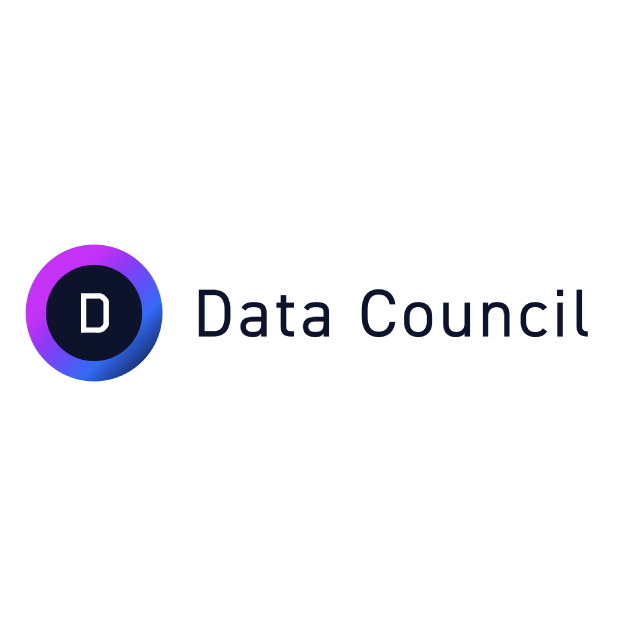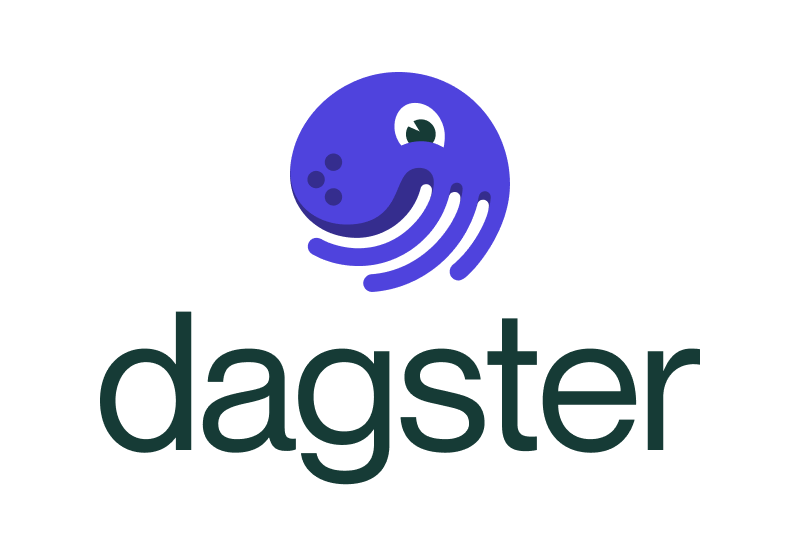
 Data Engineering Podcast
Data Engineering Podcast Using Trino And Iceberg As The Foundation Of Your Data Lakehouse
Learn how Trino and Iceberg are revolutionizing the data lakehouse paradigm, combining the best of data lakes and warehouses. Hear about the challenges and advantages of using these technologies, and get insights on the future plans for the Trino platform.
58:46
Data Lakehouse Concept
- The data lakehouse aims to combine data lakes' cost-effectiveness and scalability with data warehouses' user-friendliness.
- It seeks to offer the ease of use and speed of data warehouses with the storage and scalability of data lakes.
Data Lakehouse Definition
- A data lakehouse uses cloud object storage and standard data representations.
- It operates directly on the lake as its native form, rather than importing data into proprietary formats.
Data Lakehouse Progress and Challenges
- The data lakehouse ecosystem has improved with standardization, particularly with Iceberg's table format.
- However, competing formats like Delta Lake create fragmentation and implementation burdens.
Get the Snipd Podcast app to discover more snips from this episode
Get the app 1 chevron_right 2 chevron_right 3 chevron_right 4 chevron_right 5 chevron_right 6 chevron_right 7 chevron_right 8 chevron_right
Introduction
00:00 • 2min
Interview with Founder of Trino on Data Lake house and Distributed Computing
01:32 • 2min
Exploring the Data Lake House Paradigm
03:43 • 13min
Challenges in the Data Lake and Lake House Ecosystem
16:36 • 2min
Exploring Trino and Iceberg in Data Lakehouse Environments
18:33 • 6min
Advantages of Using Trino and Iceberg for Data Platform
24:13 • 22min
Challenges in the Data Lakehouse Ecosystem
46:36 • 5min
Future Plans for Trino Platform
51:23 • 7min
Summary
A data lakehouse is intended to combine the benefits of data lakes (cost effective, scalable storage and compute) and data warehouses (user friendly SQL interface). Multiple open source projects and vendors have been working together to make this vision a reality. In this episode Dain Sundstrom, CTO of Starburst, explains how the combination of the Trino query engine and the Iceberg table format offer the ease of use and execution speed of data warehouses with the infinite storage and scalability of data lakes.
Announcements
- Hello and welcome to the Data Engineering Podcast, the show about modern data management
- Dagster offers a new approach to building and running data platforms and data pipelines. It is an open-source, cloud-native orchestrator for the whole development lifecycle, with integrated lineage and observability, a declarative programming model, and best-in-class testability. Your team can get up and running in minutes thanks to Dagster Cloud, an enterprise-class hosted solution that offers serverless and hybrid deployments, enhanced security, and on-demand ephemeral test deployments. Go to dataengineeringpodcast.com/dagster today to get started. Your first 30 days are free!
- Data lakes are notoriously complex. For data engineers who battle to build and scale high quality data workflows on the data lake, Starburst powers petabyte-scale SQL analytics fast, at a fraction of the cost of traditional methods, so that you can meet all your data needs ranging from AI to data applications to complete analytics. Trusted by teams of all sizes, including Comcast and Doordash, Starburst is a data lake analytics platform that delivers the adaptability and flexibility a lakehouse ecosystem promises. And Starburst does all of this on an open architecture with first-class support for Apache Iceberg, Delta Lake and Hudi, so you always maintain ownership of your data. Want to see Starburst in action? Go to dataengineeringpodcast.com/starburst and get $500 in credits to try Starburst Galaxy today, the easiest and fastest way to get started using Trino.
- Join in with the event for the global data community, Data Council Austin. From March 26th-28th 2024, they'll play host to hundreds of attendees, 100 top speakers, and dozens of startups that are advancing data science, engineering and AI. Data Council attendees are amazing founders, data scientists, lead engineers, CTOs, heads of data, investors and community organizers who are all working togethr to build the future of data. As a listener to the Data Engineering Podcast you can get a special discount of 20% off your ticket by using the promo code dataengpod20. Don't miss out on their only event this year! Visit: dataengineeringpodcast.com/data-council today.
- Your host is Tobias Macey and today I'm interviewing Dain Sundstrom about building a data lakehouse with Trino and Iceberg
Interview
- Introduction
- How did you get involved in the area of data management?
- To start, can you share your definition of what constitutes a "Data Lakehouse"?
- What are the technical/architectural/UX challenges that have hindered the progression of lakehouses?
- What are the notable advancements in recent months/years that make them a more viable platform choice?
- There are multiple tools and vendors that have adopted the "data lakehouse" terminology. What are the benefits offered by the combination of Trino and Iceberg?
- What are the key points of comparison for that combination in relation to other possible selections?
- What are the pain points that are still prevalent in lakehouse architectures as compared to warehouse or vertically integrated systems?
- What progress is being made (within or across the ecosystem) to address those sharp edges?
- For someone who is interested in building a data lakehouse with Trino and Iceberg, how does that influence their selection of other platform elements?
- What are the differences in terms of pipeline design/access and usage patterns when using a Trino/Iceberg lakehouse as compared to other popular warehouse/lakehouse structures?
- What are the most interesting, innovative, or unexpected ways that you have seen Trino lakehouses used?
- What are the most interesting, unexpected, or challenging lessons that you have learned while working on the data lakehouse ecosystem?
- When is a lakehouse the wrong choice?
- What do you have planned for the future of Trino/Starburst?
Contact Info
Parting Question
- From your perspective, what is the biggest gap in the tooling or technology for data management today?
Closing Announcements
- Thank you for listening! Don't forget to check out our other shows. Podcast.__init__ covers the Python language, its community, and the innovative ways it is being used. The Machine Learning Podcast helps you go from idea to production with machine learning.
- Visit the site to subscribe to the show, sign up for the mailing list, and read the show notes.
- If you've learned something or tried out a project from the show then tell us about it! Email hosts@dataengineeringpodcast.com) with your story.
Links
- Trino
- Starburst
- Presto
- JBoss
- Java EE
- HDFS
- S3
- GCS == Google Cloud Storage
- Hive
- Hive ACID
- Apache Ranger
- OPA == Open Policy Agent
- Oso
- AWS Lakeformation
- Tabular
- Iceberg
- Delta Lake
- Debezium
- Materialized View
- Clickhouse
- Druid
- Hudi
The intro and outro music is from The Hug by The Freak Fandango Orchestra / CC BY-SA
Sponsored By:
- Data Council:  Join us at the top event for the global data community, Data Council Austin. From March 26-28th 2024, we'll play host to hundreds of attendees, 100 top speakers and dozens of startups that are advancing data science, engineering and AI. Data Council attendees are amazing founders, data scientists, lead engineers, CTOs, heads of data, investors and community organizers who are all working together to build the future of data and sharing their insights and learnings through deeply technical talks. As a listener to the Data Engineering Podcast you can get a special discount off regular priced and late bird tickets by using the promo code dataengpod20. Don't miss out on our only event this year! Visit [dataengineeringpodcast.com/data-council](https://www.dataengineeringpodcast.com/data-council) and use code **dataengpod20** to register today! Promo Code: dataengpod20
- Starburst:  This episode is brought to you by Starburst - a data lake analytics platform for data engineers who are battling to build and scale high quality data pipelines on the data lake. Powered by Trino, Starburst runs petabyte-scale SQL analytics fast at a fraction of the cost of traditional methods, helping you meet all your data needs ranging from AI/ML workloads to data applications to complete analytics. Trusted by the teams at Comcast and Doordash, Starburst delivers the adaptability and flexibility a lakehouse ecosystem promises, while providing a single point of access for your data and all your data governance allowing you to discover, transform, govern, and secure all in one place. Starburst does all of this on an open architecture with first-class support for Apache Iceberg, Delta Lake and Hudi, so you always maintain ownership of your data. Want to see Starburst in action? Try Starburst Galaxy today, the easiest and fastest way to get started using Trino, and get $500 of credits free. [dataengineeringpodcast.com/starburst](https://www.dataengineeringpodcast.com/starburst)
- Dagster:  Data teams are tasked with helping organizations deliver on the premise of data, and with ML and AI maturing rapidly, expectations have never been this high. However data engineers are challenged by both technical complexity and organizational complexity, with heterogeneous technologies to adopt, multiple data disciplines converging, legacy systems to support, and costs to manage. Dagster is an open-source orchestration solution that helps data teams reign in this complexity and build data platforms that provide unparalleled observability, and testability, all while fostering collaboration across the enterprise. With enterprise-grade hosting on Dagster Cloud, you gain even more capabilities, adding cost management, security, and CI support to further boost your teams' productivity. Go to [dagster.io](https://dagster.io/lp/dagster-cloud-trial?source=data-eng-podcast) today to get your first 30 days free!
